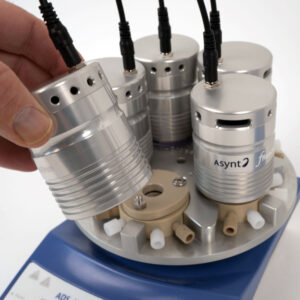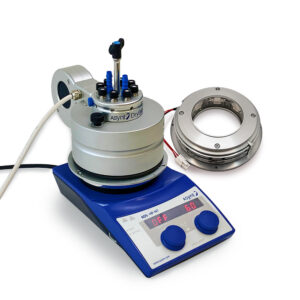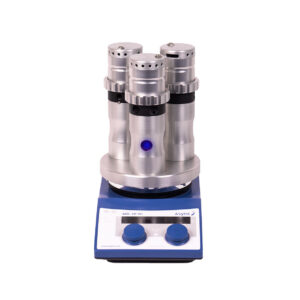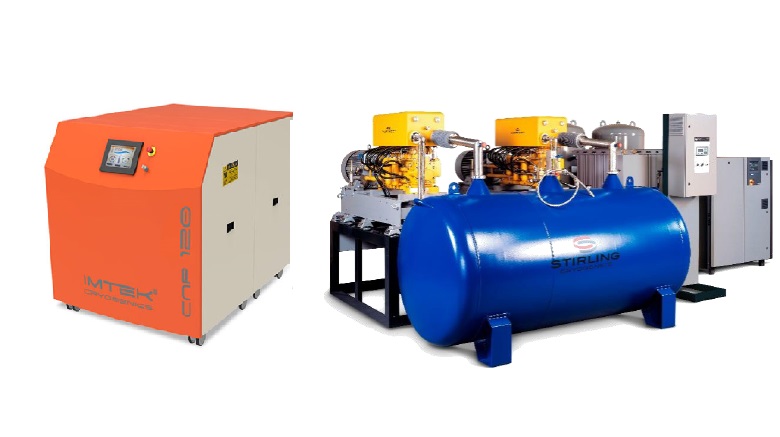Continuous-flow chemistry is increasingly important in both academic and industrial fields. It provides a reliable basis for scalable reaction discovery and method development, supporting key screening and optimization activities. It should come as no surprise, therefore, that flow chemistry is attracting interest from a growing range of chemical disciplines. Photochemistry is one such area that could reap enormous benefits from continuous-flow reactors. Likewise, flow chemistry at large can be enhanced using integrated LED photoreactors. This blog post will explore the benefits of adding a photoreactor to your flow setup.
What is an LED Photoreactor?
Photochemistry uses light sources to promote specific photo-catalytic reactions. When combined with flow chemistry, an LED module is integrated into the reaction chamber so photons can accelerate reactions induced via heating and stirring. LEDs are just one of the light sources available for photoreactors but are a popular choice because of their high intensity and long life span. They also enable high wavelength specificity, meaning specific reactions and modifications can be accurately attained1.
What are the Benefits of Using an LED Photoreactor?
Adding an LED light source to a flow reactor offers several benefits to the scientists using them and their laboratory processes. Most importantly, LEDs have fewer safety issues and consume less energy than conventional light sources, making heat management simpler than standard lamps. A summary of the benefits include:
- High intensity
- Long life span
- Reduced energy consumption
- Safe to use
Flow Setups & Photoreactors with Asynt
The team at Asynt has designed and manufactured a range of photoreactors for synthetic development and other applications. Within our reactors product range, we now provide the following systems:
- fReactor PhotoFLOW
- LightSyn Illumin8
- LightSyn Lighthouse
All of the above products now enable scientists to venture further into Flow Chemistry and photochemistry.
fReactor PhotoFLOW modules

The fReactor PhotoFLOW was developed in conjunction with the University of Leeds (UK) and gives scientists the potential to develop and expand their Flow Chemistry work quickly and easily to include photochemistry. The PhotoFLOW modules are initially available in two popular wavelengths:
- 450 nm (Blue) 10w LED COB chips
- 365 nm (UV) 10w LED COB chips
These may be used/purchased individually or with any/all of the 5 cell positions in the fReactor Flow Chemistry platform.
LightSyn Illumin8
The LightSyn Illumin8 is a benchtop 8 position parallel photoreactor ideal for photochemistry applications. It is a safe, well-engineered system with magnetic stirring and optional heating. It is available in several models, but the most favoured are the 8 x 450 nm (Royal Blue) 10w LED COB chips and 8 x 365 nm (UV) 10w LED COB chips.

This device allows multiple photochemical experiments to be conducted simultaneously and safely with active cooling and light-tight seals. A key feature of the LightSyn Illumin8 is the easily-interchangeable LED light modules allowing scientists to vary their wavelength as necessary, with cartridges available in popular colours in the wavelength range from 365nm-660nm.
LightSyn Lighthouse
For photochemists who need to obtain equal photon flux throughout their reaction medium, the LightSyn Lighthouse is an ideal solution. This unique device reduces the distance between the light and the sample, increasing the power to the medium it is exposed to, by means of a novel quartz reactor rod at its core. The Lighthouse also has increased safety aspects as the built-in microswitch stops exposure to light as the device must be sealed for it to become activated.

Contact a member of the Asynt team today if you would like more information about the products listed above. Use the form below to get in touch.




